I moved to London nine months ago after living in America for 26 years — first in Texas and then New York City. Frequently my friends ask, “So how’s London?” “What’s London like?” “Do you like living in London?” And I always respond, “London is fine. But the British countryside is incredible. You have to come visit so we can go.” And it is amazing. It is idyllic. It is the most idyllic place I've ever been, and I've visited the Grand Canyon, Yellowstone, Alaska, and Chuck E. Cheese's — all the lauded American landscapes. But unlike those places, the British countryside gets comparatively little credit. I want to help you understand why this is a grave injustice.
This photo of Wales taken with my own imperfect human hands.
The first thing you need to understand is that the countryside is really, exceptionally nice-looking.
When you first visit the British countryside, you will find yourself using adjectives like “charming," “quaint," “lovely," "picturesque,” and other bygone tweedoms you didn’t realize your vocabulary included. Don't worry, you haven't caught some plague that induces Victorian elocution. Everyone does it, and the reason they do it is the countryside is just that good. If you Google image search “British countryside,” your mobile screen will erupt with greenery, country inns, moss-covered moors, hedged roads, and sprawling fields crisscrossed in ancient stone walls like seams on a patchwork quilt. These images are not at all different from the views you'll find if you actually venture, IRL, into the British countryside. Scenes of pastoral bliss leap out at you round every corner. And the craziest thing is this is all by design.
That stream, how charming! That colored door, how charming! Those vines clinging to the cottage, how charming! That mill wheel, how charming!
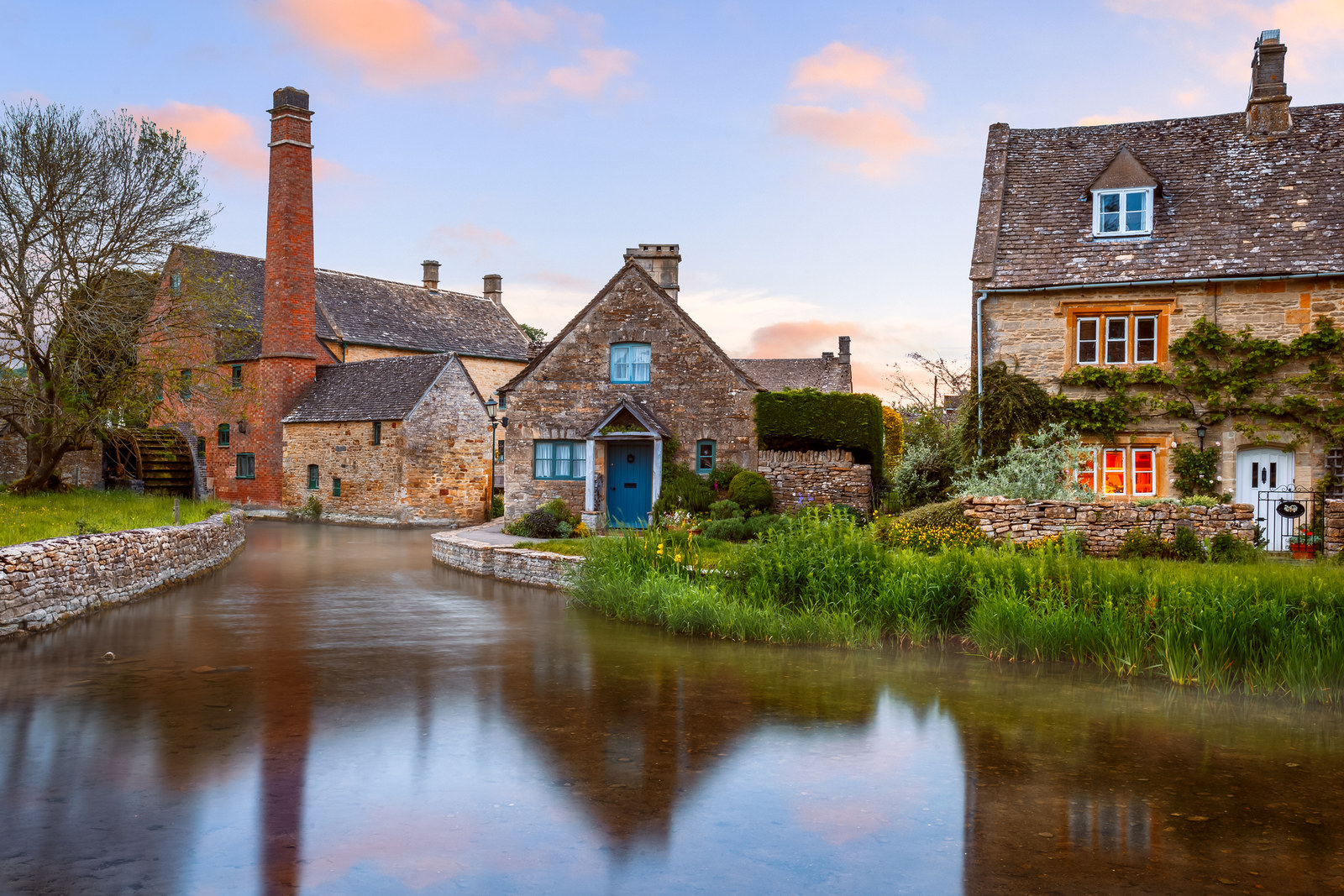
The countryside is also historically interesting.
It’s important to know that the countryside is so perfectly good looking because it was engineered to be that way. One feature of the British countryside that is mostly lost on Americans is its artificiality. It was created via landscaping over hundreds of years by the British people, whose thousand-year-long obsession with gardening is only eclipsed by their love of small cakes with raisins. In America, we're familiar with the pride suburban people have for their front lawn. To get a sense of the project that is the British countryside, imagine that same pride except the lawn is not a little area in front of your house, the lawn is the entire country, and these crazy chaps have been fussing with the hedgerows since the fall of the Roman Empire
The difference here is momentous. American "nature preserves" are raw, unspoiled land that has looked the same way for eons. We preserve it precisely so it stays that way. In contrast, British "nature preserves" are completely spoilt by human interference dating back thousands of years. But they're preserved because they've reached some captivating state of in-betweenness that looks like something from a storybook.
Those trees didn't always grow in perfect clumps and lines. Nature did not build the quaint stone walls!
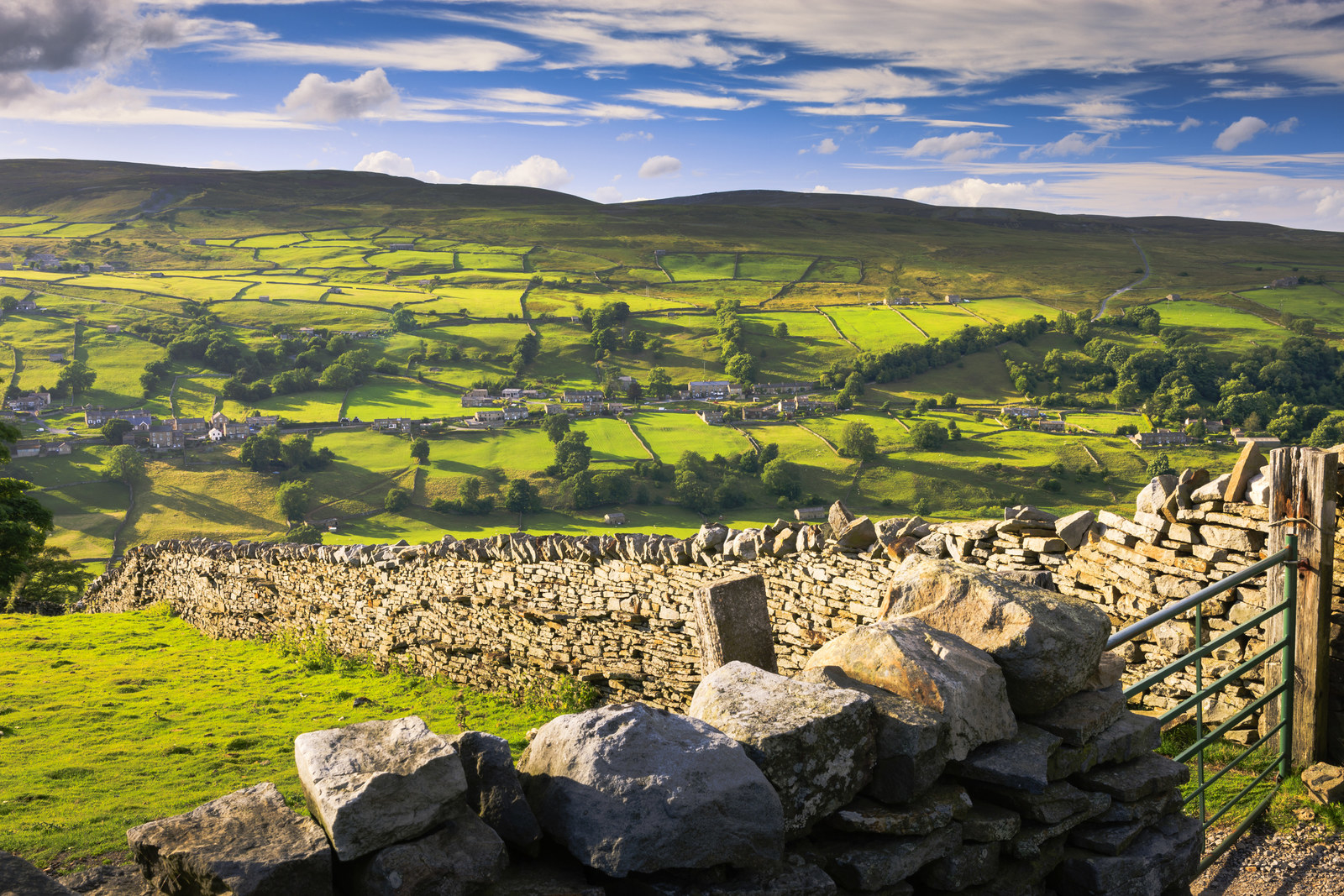
You may ask how it’s possible that a culture can landscape (literally with rakes and shovels and axes and, occasionally, dynamite) their entire landmass. The answer, from what I've gleaned from some research and reading, is two things. First, neolithic people cut down acres and acres of forestland for farms, firewood, and settlements. After that, the entirety of the island of Britain was owned — and to some degree is still owned — by very wealthy noble families with unlimited means and limitless free time. What this means is that 30 consecutive generations of aristocratic tree huggers took the idea of “having a nice lawn” to such extremes that they actually moved mountains, built lakes, planted forests for hunting grounds, imported animals and plant species, and fundamentally changed the British landscape to look precisely like the images of pastoral paradise one sees depicted in Renaissance paintings. (If you want to learn all about this, read The History of the Countryside by Oliver Rackham, summarized here.)
As a result, the entirety of England is an ancient theme park manicured to look freaking pretty. It’s like if Walt Disney opened the Bible to the book of Genesis and said, “Hey, how about we build this Eden place in southern Florida?” This is quite literally what happened in Britain except Walt Disney had a title like “The Baron of Pall Mall" and owned 10,000 acres of prime Essex real estate.
Don't forget that Great Britain is an island. Miles of coastline means miles of quaint seaside communities and dramatic cliffs.
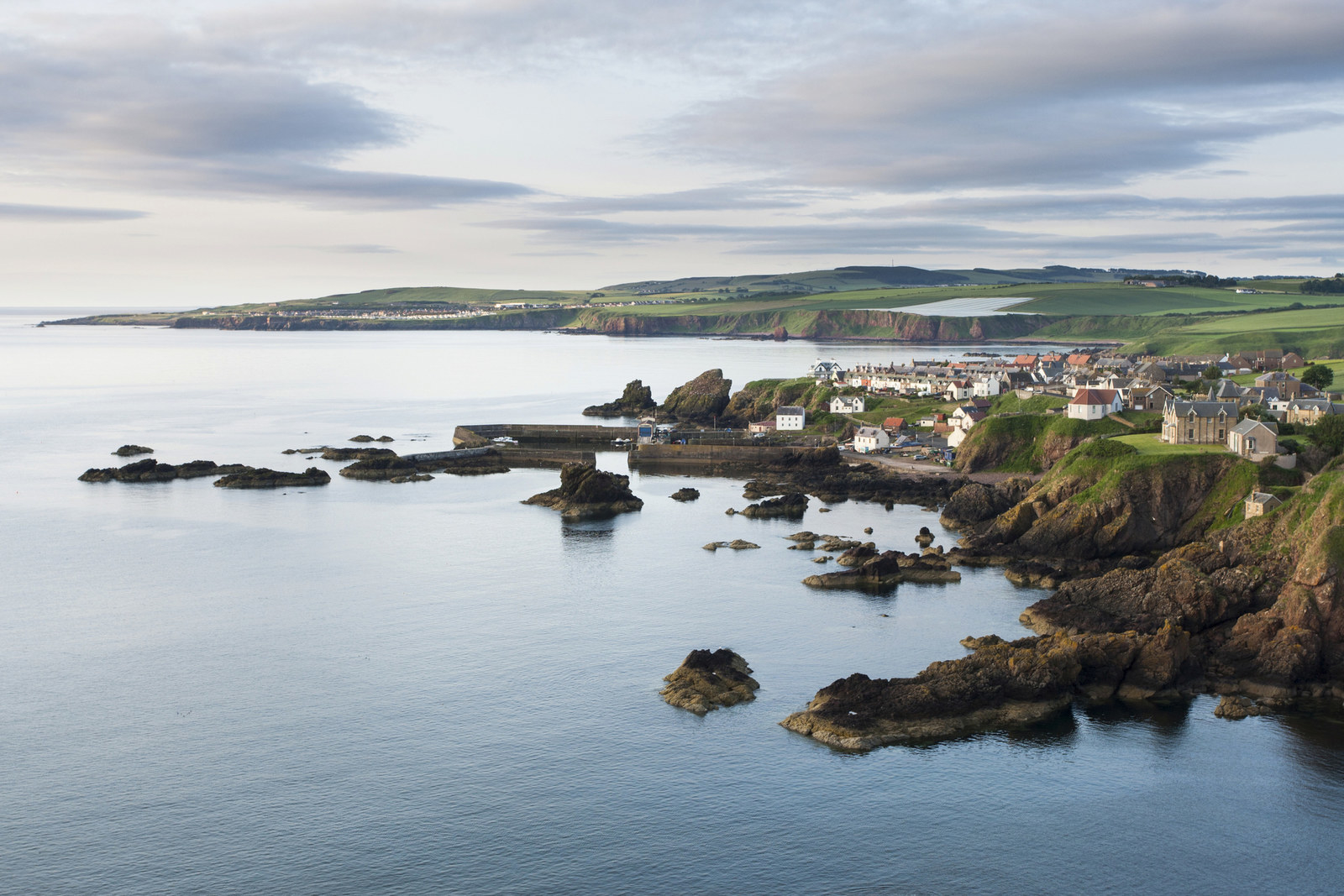
IF ALL OF THIS is not enough to ignite your wanderlust...
...do not quit on me yet. Let’s get down to the specifics. What can you actually do in the British countryside aside from sing bucolic hymns and weave flowers into baskets? Why is this a place that deserves your hard-earned vacation days?
First off: The accommodations have real character. You can stay in a charming cottage, a bed and breakfast, or a castle.
Wortham Manor, a Tudor-style house originally built as early as the 1400s.
What better way to enjoy the splendors of Lord Derbycastershire’s sprawling estate than inhabiting a palatial dwelling that he himself lived in, before he died of plague in the 16th century? Why stay in a motel when you can stay in a country inn, aka the region’s busiest motel circa 1722? And instead of renting an apartment, how about renting a small and cozy cottage with a thatched roof that is older than the Declaration of Independence? The buildings in England ooze history, and it’s really fun to sleep in the same room that King Edward II slept in as he spent a miserable winter besieged by the Normans. Soon after you'll adopt the royal "we" and say things like, "we are quite delighted with the towel warmers in the bathroom." If you don’t believe me, try it. You can also stay in a variety of castles and manor homes for less than $100 per person per night, which definitely beats a 3-star hotel, IMHO.
Secondly, you can travel to the countryside by train.
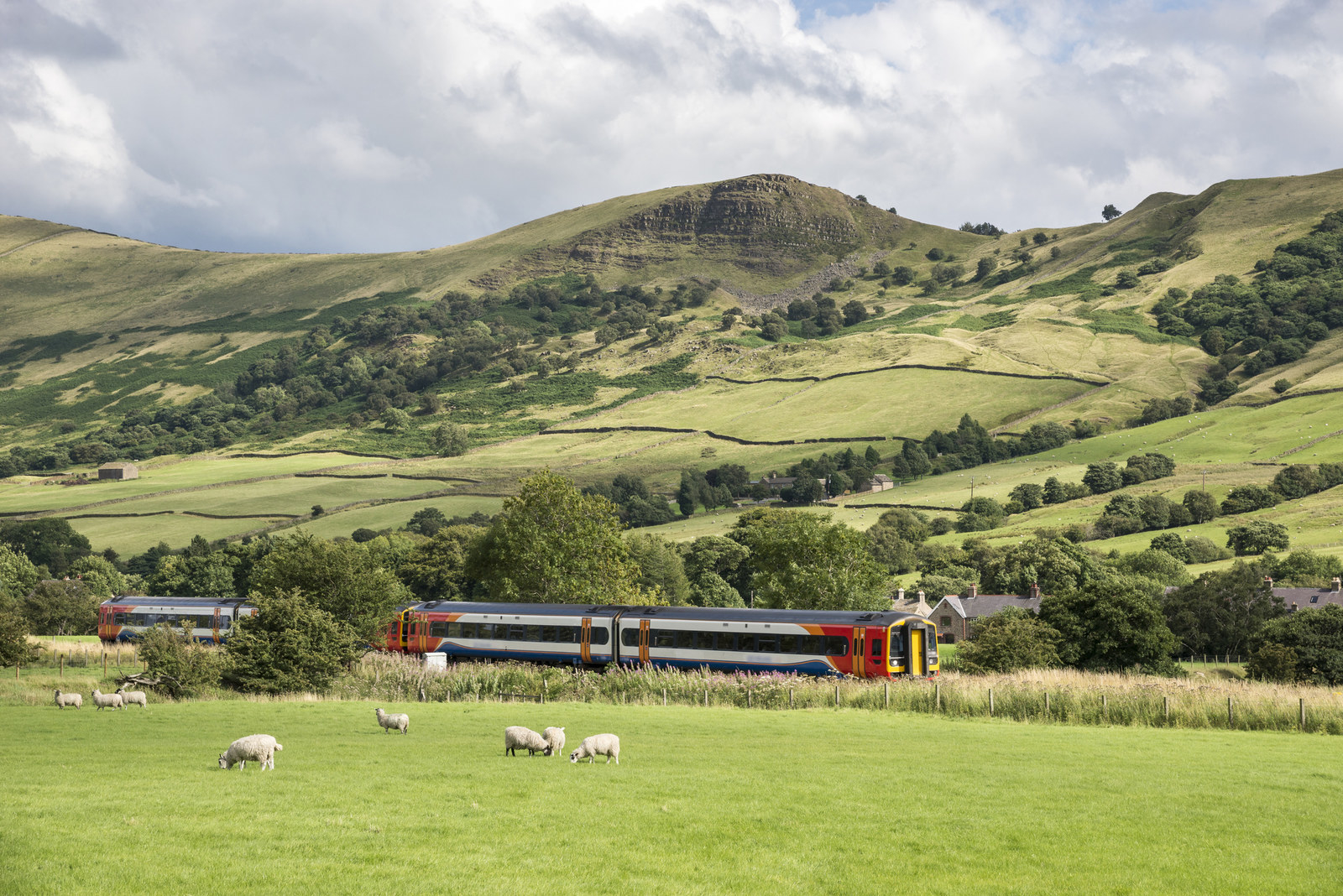
The rail system is one of Britain's greatest features. Many worthy getaways are easily accessible by train (and explorable by foot once you arrive) and often it's a journey of no more than a couple hours from the nearest airport. Trains are great because you can buy a ticket in advance or last minute. You can bring your own food and drink (including alcoholic drinks). You have more space to spread out, including seats with a table for laptop work or rousing card games (King's cup? It would be fitting; this is a kingdom after all.). And, of course, you can enjoy scenery out the window.
Note that some places in the countryside do require a car. But I've mostly made due by training and walking and then hiring a cab to reach some far flung attraction or pick me up after a long hike. Also, true story, one time I hitched a ride with a lovely British woman who was also a town councilwoman and drove a little yellow car.
The region’s local attractions are always cool and/or delightful.
I've taken five trips now to the countryside, and my activities have included touring historic castles and cathedrals, going on charming country walks, playing golf, surfing in Wales, touring a winery, visiting an auto museum, rock climbing, and attending not one but two parades by complete accident (because a parade of antique firetrucks driving through the narrow streets of a medieval town is precisely the sort of thing that happens in the British countryside on any given Saturday morning). The local attractions vary widely depending on the area of Britain you’re visiting. But you really can’t go wrong. Just google it. That's how I plan everything.
Festivals and events are quit a bit quirkier than the standard American county fair.
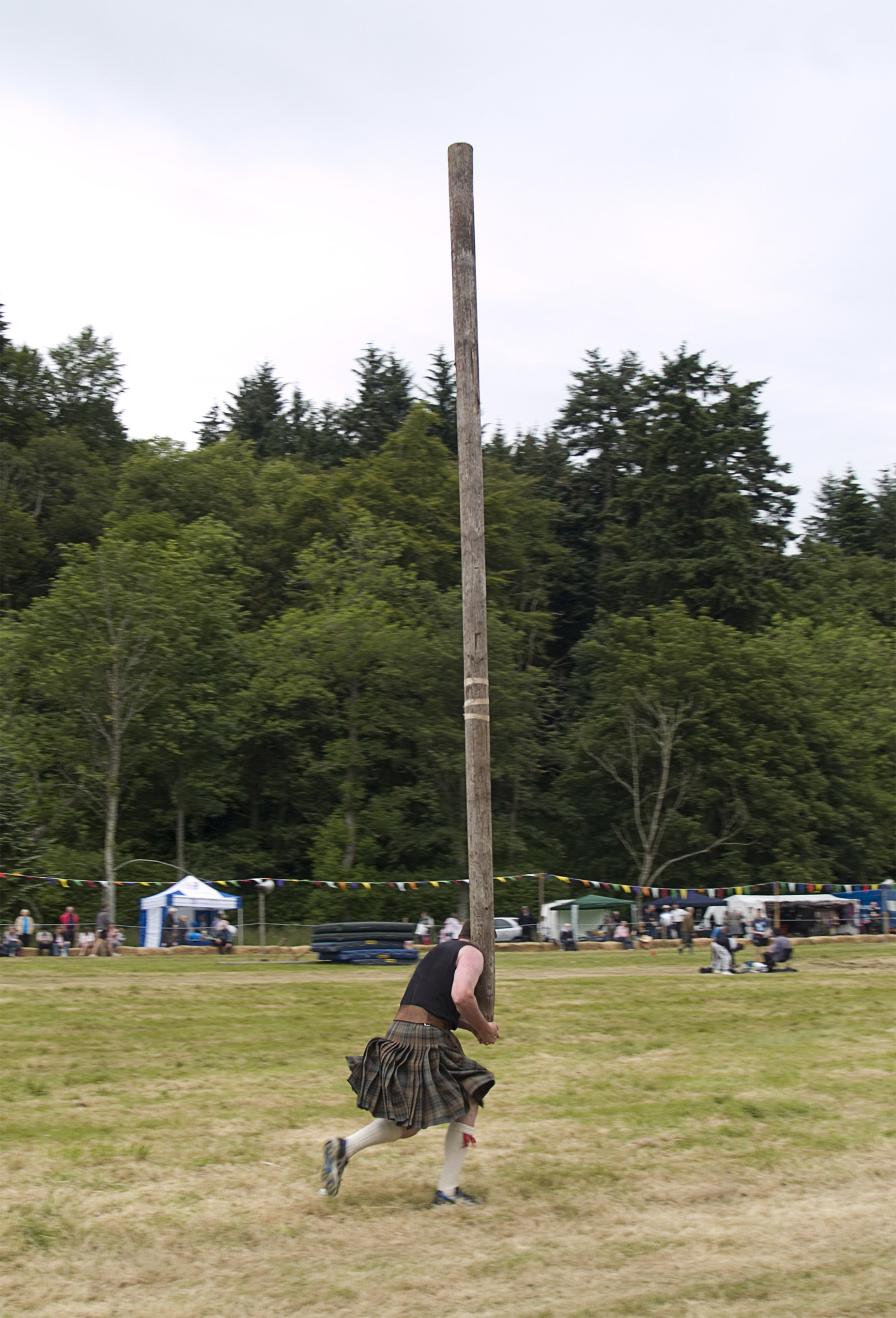
And I'm not talking about a music festival (though you could do that too). Britain has a variety of strange and antiquated to-dos that appear so ridiculous to our American sensibilities that you can't help but go and enjoy yourself. You might even want to compete! Popular spectacles include Tractor Pulling (drag racing but for tractors pulling weighted sleds), Cheese Rolling (watch a bunch of young men chase a rolling cheese down a hill), and the Highland Games, to name a few.
If you love hiking, a country walk, also known as a “ramble,” is like hiking but better.
If you need only one reason to love the British people it is this: This culture possesses such a complete understanding of human nature that they've incorporated a stopover at a pub into every walk they’ve taken over the past 500 years. Americans hike like it’s an Olympic sport. We outfit ourselves head-to-toe in Gore-Tex, get up at dawn, and consume energy bars made of chalk and electrolytes while kicking dust on our way to the summit. In contrast, the British prefer to “ramble,” not “hike," they wear coated cotton jackets and wellies, and they eat lunch at the pub instead of packing something along. The term ramble conveys a certain casualness, and not without reason. The idea is you get up, you wander around through the woods, over farms, and dales, and streams — encountering a variety of landscapes that will immediately transport you to works of fiction (Harry Potter, Jane Austen, Downton Abbey, the Bronte sisters, and even James Bond’s Skyfall estate) — and eventually, after you’ve gone a few miles, you come upon a lovely little ale house that serves a hot plate of hearty country fare with a cold beer.
Again, this is not an accident. Whoever maps the country walks always seems to chart it so you pass a pub at just the moment you need one. And if the weather turns, or you find yourself too full after your meal to continue your walk, there is a high chance that you’re only across the street from the place you started earlier that morning. America, we have something to learn in this. Everyone needs to chill out with the exercise. In truth, every walk across the the UK, an area of almost 10,000 square miles, ends at one place: the pub.
This website is a good place to find walks, though you should also try searching for walks in your specific county or village. You'll find that many of the locale parish websites have the same antiquated charm as the towns. I feel like I'm browsing the web in 1997! How quaint.
A British country pub is one of the world's finest comforts.
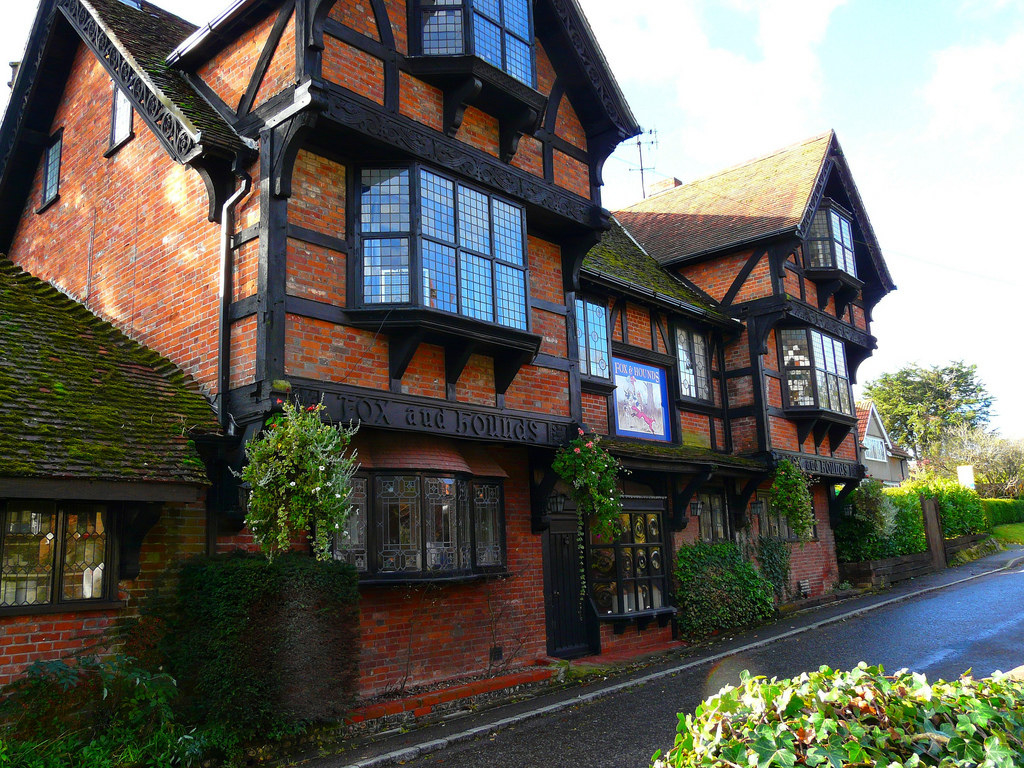
A pub is a bar designed to look like a living room from 1834. The best ones have history attached to them (was once a notorious house of ill-repute, that sort of thing). They have real, wood-burning fireplaces you can sit beside when the weather is sour, drink a strong ale, and ruminate. And when the sun shines, they have sprawling lawns where dogs are welcome. Some of them even rent rooms, just like the road houses of yore.
Don't be afraid of the cask beer. It is served warmer (50°F vs 35°F) than keg beer, but it's also less fizzy. This means it makes a better water substitute after a long ramble, and you can drink more of them without offending your stomach. There is also the fabled Sunday Pub Roast. The best way to describe it is this: Imagine if every restaurant in the US served a Thanksgiving feast every weekend. That is what happens at pubs all across Britain every single Sunday, except they call it roast. This brings me to my next point.
The countryside is the perfect place to eat and enjoy British food.
Americans often malign British food. I believe this is because British food is misunderstood. The cuisine does not make sense to the American palate until you’re in England eating it. You may ask yourself: But why would I want to eat a savory steak stew deposited into a buttery, flaky pie crust? But I’m not interested in a breakfast platter than includes a meat trio of sausage, bacon, and black pudding, runny eggs, unlimited toast, and bottomless coffee or tea. Cask beer? But isn’t it warm?! Allow me translate British food into a framework Americans understand, namely: The Lord of The Rings. Remember in Fellowship when Gandalf and the hobbits narrowly escape the Ring Wraiths and wind up at the Prancing Pony? It's raining buckets, and they're tired and barely alive? I think British food was invented to restore just such travelers. It's journeyman's fare. For the exhausted and starving, it's a cuisine with medicinal purposes.
If this doesn't sound appetizing, you either a) need to order another beer or b) have not earned your meal through toil and exercise. But I promise you this: After completing a country ramble or riding your bike 10 miles or wandering over the battlements of a castle in a drizzle that only adds to the ambiance of the entire experience, a hearty British dish — beef burger with mature cheddar cheese and crisp chips, homemade cumberland sausage with onion gravy and mashed potatoes, roasted skin-on pork loin with spiced apple sauce and wilted spinach — will not just sound good, it will sound life-giving. And it will be. Especially when washed down with a proper pint of ale.
And if none of this moves you, or you are vegetarian, do not fear. Not only do pubs have modern menus with veggie-friendly options (I would recommend grilled halloumi anything), you can usually find a good Indian or Italian place, even in small English towns, and it's likely better than the one you know in America.
And let's not forget how lovely breakfast in a tea room can be.
So there you have it. The British countryside is a special place.
My entreaty is complete. I hope you have a sense of the history, the quaintness, and the wonderful British culture that prizes comfort and pleasantry above all else. Remember the British countryside because it is truly a place that, in the parlance of our time, You Absolutely Must Visit Before You Die.
Don't limit your trip to just the city. Venture into the countryside and explore the Great (British) Outdoors.
View this video on YouTube
Go to BritishFamous.com to learn more about the best things in Britain.


